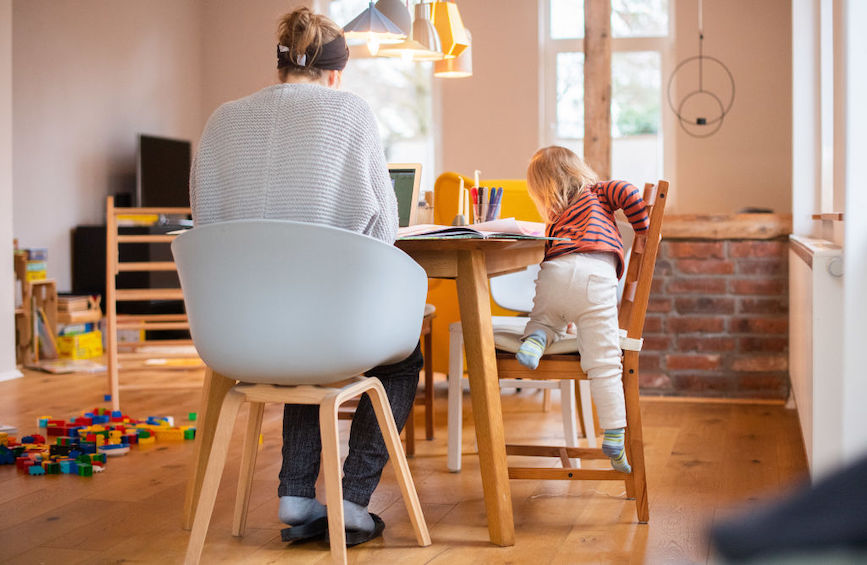This last year has been tough for everyone as the impact of COVID-19 invades everyone’s lives, but recent data show it has been toughest for women — especially moms.
More than 4.6 million women have lost their jobs since the beginning of the pandemic, almost a third of them aged between 25 and 44. Most of them cited childcare as the reason they had to leave work.
A LeanIn.org/McKinsey Women in the Workplace Report released last September showed coronavirus is rolling back the significant gains of women in the workplace achieved in the past few years.
The study of 317 companies representing over 12 million workers found one in every four women were considering downshifting their careers or leaving the workforce because of the pandemic. Around three in four senior-level women surveyed said “burnout” was the reason.
Despite advances in joint parenting in recent generations, moms are still three times more likely than fathers to be shouldering most of the childcare, housework and family planning responsibilities. McKinsey noted that working moms were doing an extra 20 hours of domestic chores on top of their daily working life.
Mothers are also more likely to worry about being judged for their performance at work based on the increasing demands of domestic responsibilities. Black women feel even less supported at work, especially given the increased worry caused by last year’s racial reckoning in the United States.
The New York Times’ excellent recent Primal Scream series profiled mothers struggling to cope with their multiple responsibilities during the pandemic and tells some individual stories to illustrate the narrative represented by the research data.
Children’s nutrition brand Little Spoon launched an Is This Normal? parenting platform to profile moms who are struggling due to COVID-19.
PRWeek has long championed women in the workplace and celebrated the stellar individuals who provide role models for the 70% of the PR workforce that is female to aspire to emulate. But the impacts of COVID-19 have clearly impacted PR pros just as much as other professions.
Our thoughts are with every PR mom coping with the challenges 2020 has thrown at them and 2021 is continuing to do. I’d also like to recognize PRWeek’s moms who have gone beyond the call of duty to keep our brand functioning as if nothing abnormal was happening. Shout out to Diana Bradley, Lisa Gill, Jennifer McLaughlin, Robin Broomer, Tracie Palmer, Edelyn Sellitto, Emma Golden, Tracey Harilall, Anna Naumoski, Maggie Keller and Adele Durham.
In the lead up to the honoring of the Hall of Femme Class of 2021 in early April, and to celebrate International Women’s Day and Women’s History Month in March, PRWeek is running a series of op-eds by moms illustrating how COVID-19 has impacted their daily lives and the challenges of balancing domestic responsibilities with work.
It will tell some stories but also present the challenges in an unvarnished and raw fashion. Titled Femme Forward, the series kicks off next week. If anyone wishes to pitch an idea or volunteer their thoughts, please email me here.
PRWeek's upcoming Salary Survey considers the issue of burnout among PR professionals and the importance of leaders appreciating what their staffers are going through in terms of physical and mental health.
In it, Zeno Group CEO Barby Siegel notes: “It’s important for people to know they are not alone, be it parents homeschooling their kids or those living alone. The pandemic has shown the importance for leadership to not be afraid to show vulnerability. And so, as much as I talk about being a fearless leader, nobody is unscathed. I, too, have my days of sadness.”
With support, consideration and teamwork we can all come through this together, but the first step is recognizing how much the pandemic has impacted some more than others.
